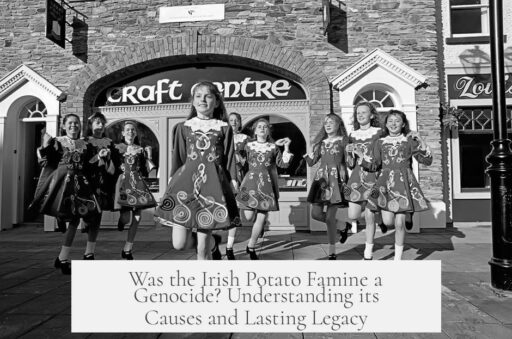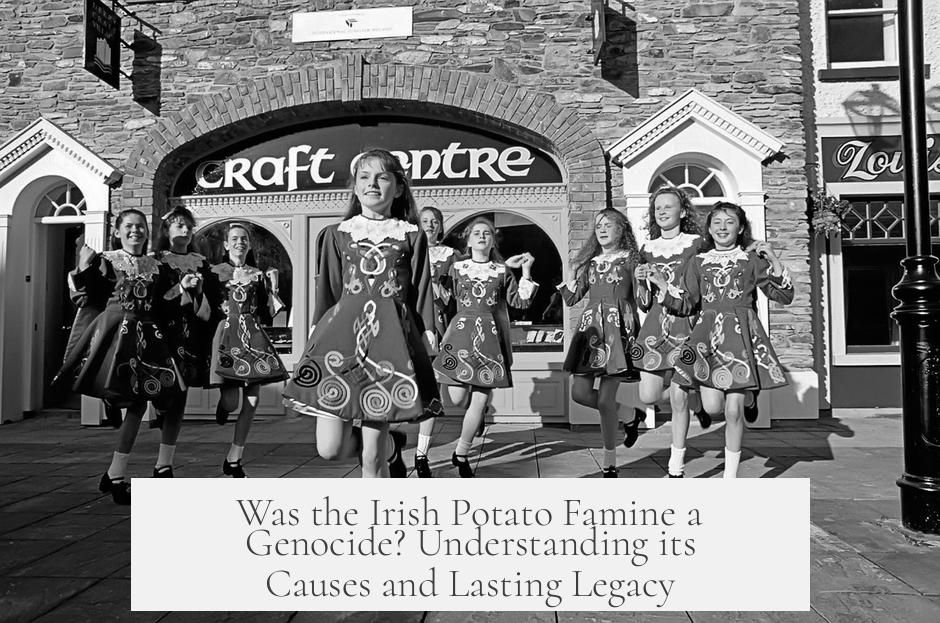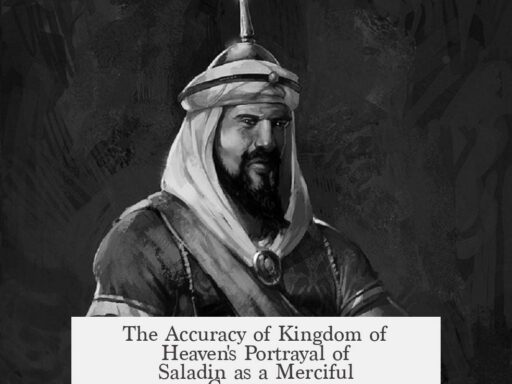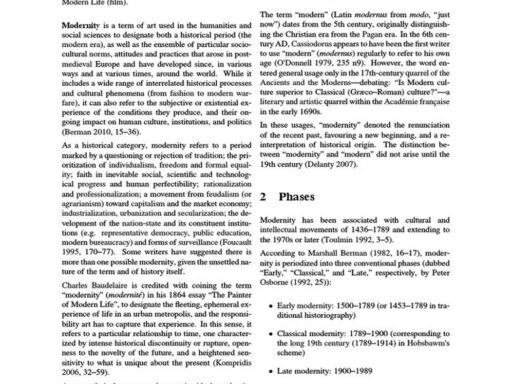The Irish Potato Famine is widely seen as a devastating famine worsened by British policies, but it does not meet the strict legal definition of genocide. Between 1845 and 1849, a potato blight struck Ireland, causing massive starvation and death. The crisis expanded due to Britain’s colonial governance. British authorities enforced laissez-faire economics, refusing adequate aid unless Irish victims accepted harsh workhouse conditions or religious conversion. The export of most food from Ireland to Britain compounded the problem.
This famine reduced Ireland’s population from about 8 million to 6.5 million by the 1850s. Continued emigration further halved the population by the early 20th century. The impact extended to Irish culture, notably threatening the Irish language, as the worst-hit were poor rural Irish speakers.
Some 19th-century commentators accused Britain of intending to eliminate the Irish population as part of a racist, Malthusian policy to address overpopulation. However, contemporary historians largely reject the label of genocide. They interpret British actions as neglect and cruelty rather than a deliberate effort to exterminate a group. The United Nations defines genocide as acts committed with intent to destroy, wholly or partially, a national, ethnic, racial, or religious group.
British policy demonstrated disdain and neglect but stopping short of this intent. Many scholars characterize the famine as a crime against humanity combined with natural disaster rather than genocide. This nuanced view reflects the difficulty in assigning specific intent amidst complex historical circumstances.
The famine is remembered primarily as a humanitarian disaster. The term “genocide” carries legal and moral weight requiring clear proof of intent, which remains debated. Thus, the event retains the designation “famine” in public memory and history teaching, focusing on the tragedy of mass hunger driven in part by colonial mismanagement.
- British policies intensified the famine’s effects but lacked proven intent to exterminate.
- The UN genocide definition emphasizes intent to destroy a protected group.
- The famine caused demographic collapse and cultural loss in Ireland.
- Most historians classify the event as famine plus negligence, not genocide.
- Public memory preserves the event as a famine due to evidence and legal criteria.
Was the Irish Potato Famine Really a Genocide Caused by the English? And If So, Why Is It Remembered as a Famine and Not a Genocide?

The Irish Potato Famine—also known as “An Gorta Mor” or The Great Hunger—sparks a fierce debate to this day. Was it really a genocide caused by the English? The short answer: it’s complicated. While there’s no denying that British colonial policies worsened the catastrophe, most modern historians stop short of labeling it genocide. But why?
Let’s dissect this tangled history, shining a light on realities hidden between famine, neglect, and intent.
The Blight and the British Policy Cocktail
At first glance, the famine seems straightforward: a potato blight wiped out the staple crop for about half of Ireland’s people between 1845 and 1849. But this wasn’t just natural disaster meet bad luck. British economic policies and governance played a massive role. The English government’s laissez-faire stance made the crisis worse, even cruel.
For starters, Ireland was forced into monoculture, relying heavily on potatoes while other food crops were exported to feed Britain’s booming industrial cities. So while Irish families starved, ships piled high with grain and cattle sailed away. It’s like refusing to share your lunch with the starving kid at school—and joking that they should “just work harder” for food.
But wait, there’s more. Help from Britain came with harsh strings attached: relief was only granted if the Irish endured brutal workhouse conditions or abandoned their Catholic faith. Starving people were essentially extorted into slavery or converted—a grim catch-22.
Was It Genocide, Or Just Neglect?
The UN Genocide Convention defines genocide by intent to destroy a group “in whole or in part.” So the question boils down to intent. Did Britain want to annihilate the Irish?
Most historians say no. Their consensus: the famine was a horrific crime against humanity characterized by negligence, callousness, and colonial disdain—not a planned genocide. John Mitchell, an Irish nationalist writing decades later, claimed the British aimed to exterminate a “lowly people” under a Malthusian guise. But this perspective, while emotionally potent, doesn’t meet scholarly criteria.
Nearly all academic experts agree the tragedy was a result of neglect fueled by prejudice, but not deliberate extermination. A vital distinction.
The Devastating Impact on Ireland
Regardless of labels, the true horror lies in the human toll.
| Aspect | Impact |
|---|---|
| Population drop | From ~8 million to ~6.5 million by 1850s |
| Long-term decline | Population halved by early 20th century due to emigration |
| Cultural Loss | Irish language nearly extinct due to deaths of western rural speakers |
This demographic collapse reshaped Ireland’s future forever. The Irish language and culture suffered long-term setbacks but have thankfully seen revival efforts today.
Why Do We Remember It as a Famine and Not a Genocide?
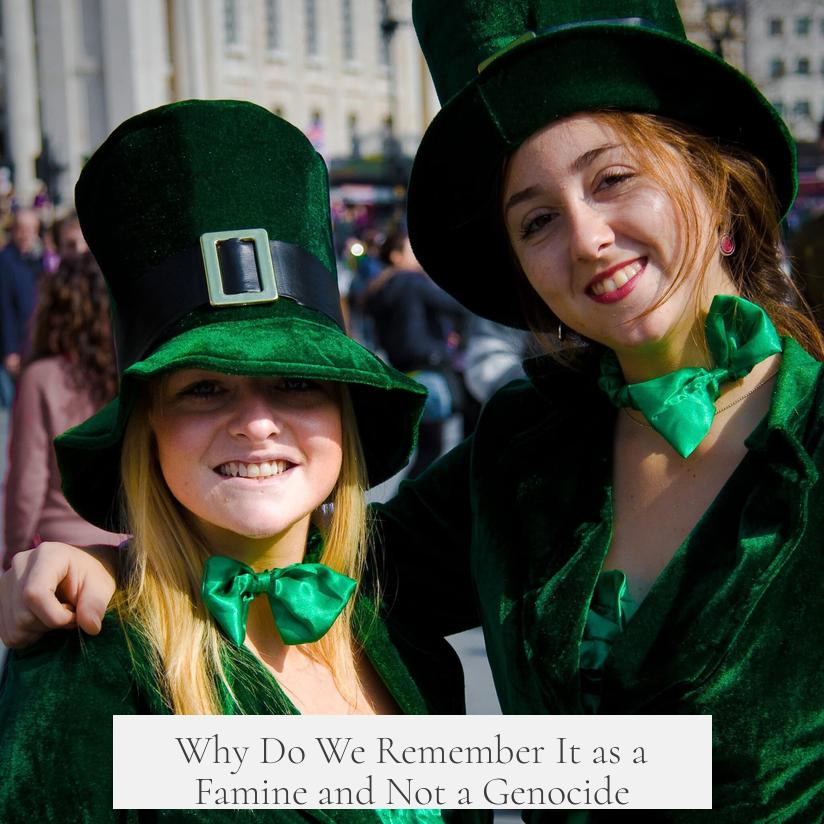
Good question. If Britain’s policies worsened the disaster and many died unnecessarily, why isn’t the word “genocide” used more often? This ties back to the tricky concept of intent and legal definitions.
The famine is remembered primarily as a famine because everyone agrees that hungry people died from starvation and disease caused by potato crop failures. British negligence and colonial oppression amplified this suffering, but there’s no conclusive proof of a calculated plan to exterminate the Irish as a people.
This nuance matters. Calling it genocide alters historical narratives and has legal and political implications. Ireland’s tragic history is acknowledged widely, but the famine is taught as a brutal colonial failure, not outright state-sponsored murder.
Think of it this way: was it a catastrophic game of chicken where Britain’s cold indifference directed the fate of millions, or an aggressive goal to wipe out a nation? Historians mostly lean toward the former.
Lessons and Reflections for Today
What does this debate teach us? First, history is messy. The brutal truth of the famine’s death toll, British negligence, and cultural loss cannot be softened. Second, labels like “genocide” carry heavy weight and must be considered with care.
Recognizing the Irish Potato Famine as both a famine and a human tragedy with elements of a crime against humanity helps keep its memory alive, focusing on preventing neglect and prejudice in future crises. History’s harsh lessons may be the best hope for a better future.
So when you hear the “genocide” question, think not just about labels but about what happened—and who had the power to prevent such a nightmare but chose not to act. Isn’t that a story worth remembering?
